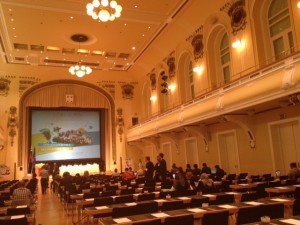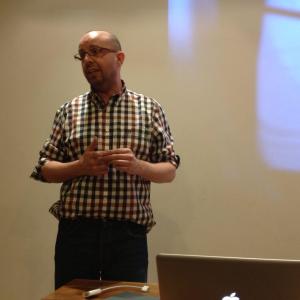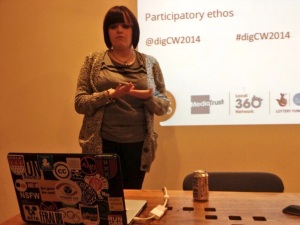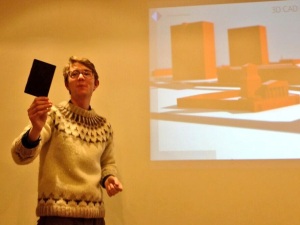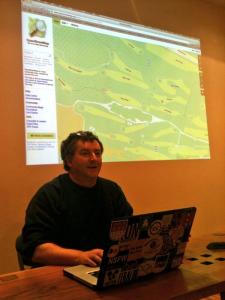I’ve spent most of this week in Ljubljana, Slovenia for the Open Course Ware Consortium Global Conference where I was interested to hear about a project that has much to inspire Open Scotland. Ljubljana was chosen in order to host the conference to highlight an ambitious new national initiative, OpeningUpSlovenia. The initiative was launched at the conference by Jernej Pikalo, Slovenian Minister for Education, and Mitja Jermol, Head of Center for Knowledge Transfer at the Jožef Stefan Institute.
OpeningUpSlovenia takes its inspiration from the European Commission’s 2013 Opening Up Education communication. OpeningUpSlovenia is a collaborative cross sector initiative involving all Slovenian universities, compulsory and vocational education institutions together with technical, research and industry partners. The aim of this ambitious initiative is to:
“create an open educational system parallel to the formal one to exploit all aspects of open education, allowing rigorous, transparent, and replicable testing of open learning environments, open education theories, new business models, open organisational forms, open education computational tools, and new and emerging technologies for the educational technologies market place.”
During the fist stage of the initiative, three sub-projects will be launched focusing on different educational sectors;
1. Compulsory pre-school, primary and secondary education,
2. OER in higher education,
3. Vocational education, on-the-job training and life-long learning.
These projects will create advanced technologies, open learning environments and open educational resources and will foster open connectivity and innovation. Supporting multilingualism in open education is also a corner stone of the OpeningUpSlovenia.
Through this initiative, Slovenia aims to become a role model for open education in a knowledge based Europe. In response to the question ‘Why Slovenia?’ Mitja Jermol responded, ‘Because Slovenia is a “little big country”’. Due to its size and scale, Slovenia is in an ideal position to support the EU’s aim of opening up education across Europe and globally. In order to do this, Slovenian Minister for Education Jernej Pikalo stressed unequivocally the need for legislative measures and explicit government policies to support innovation in open education.
It will be very interesting to see how the OpeningUpSlovenia initiative progresses and what Scotland, as another “little big country”, can learn from their experiences. In drawing the launch of OpeningUpSlovenia to a close, Fred Mulder, UNESCO Chair in Open Educational Resources called for more countries to follow Slovenia’s example and open up education. Wouldn’t it be nice if Scotland was next?
You can find out more about OpeningUpSlovenia here: http://www.k4all.org/openingupslovenia/

